To strengthen the in-depth exchange and cooperation between Chinese and Vietnamese medical careers, promote the development of medical care in both countries and comprehensively guarantee the diagnosis and treatment efficacy of Vietnamese tumor patients, on June 6, a group of Vietnamese Ho Chi Minh International medical experts and media were invited to visit St. Stamford Modern Cancer Hospital Guangzhou. President Wang Huaizhong, Director of the Hospital Office Yang Jinna, Director of the International Affairs Department He Langbing, Director of the Nursing Department Wang Junlan, and other hospital leaders warmly received them on the day of the visit.
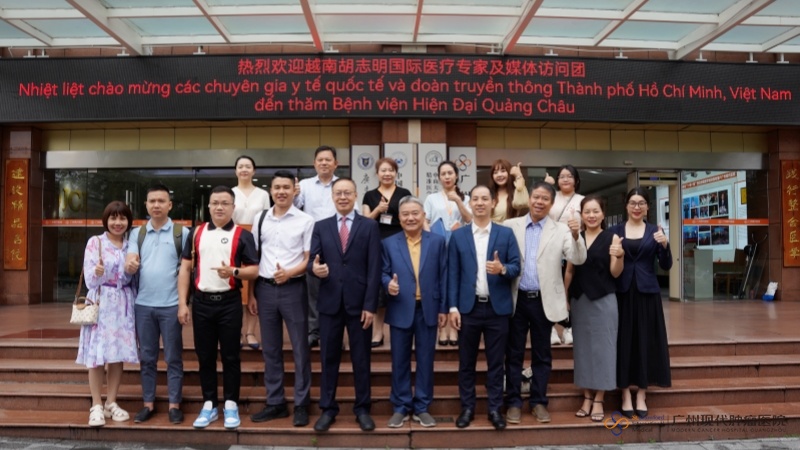
President Wang Huizhong gave a welcome speech: first of all, he warmly welcomed the arrival of Ho Chi Minh International medical experts and media group, and briefly introduced the medical advantages of the hospital, its strength as an international JCI-accredited hospital, as well as the prospects of exchanges and cooperation between the two sides. It is hoped that through mutual learning and reference, adhering to complementary advantages, and ultimately achieving win-win collaboration, on the starting point of international JCI accreditation, the two sides will promote the common progress of medical care, and through the promotion and popularization of the CACA Guidelines for Holistic Integrative Management of Cancer, bring cutting-edge oncology technologies and treatment concepts to Vietnam, so that new technologies and ideas can benefit more people.
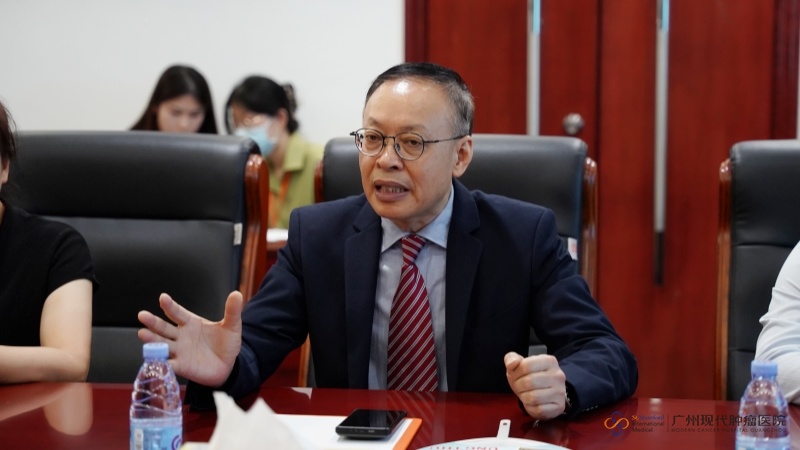
[Speech by President Wang Huaizhong]
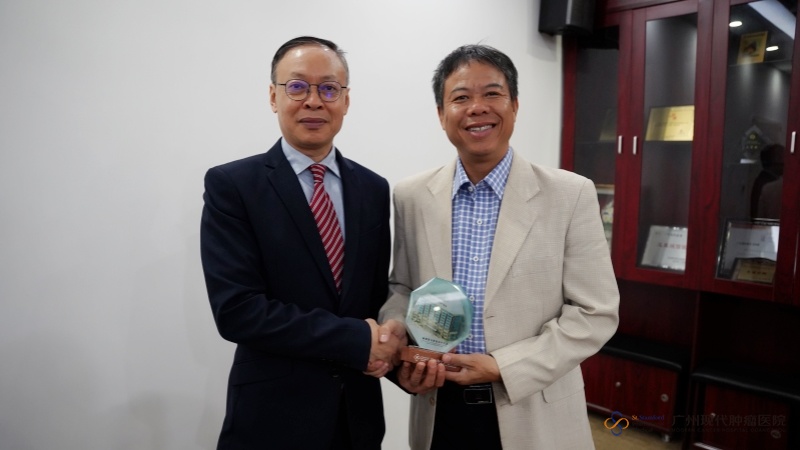
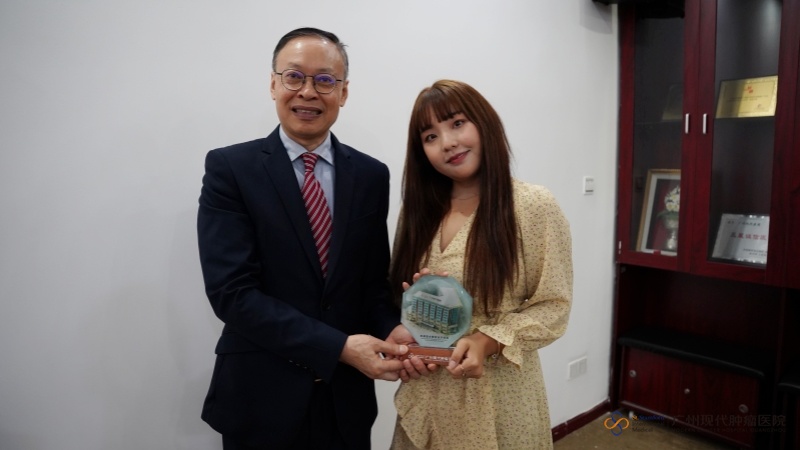
[Exchanging souvenirs]
Learning from and building on the strengths of otherss
During the trip, the medical experts and media delegation from Ho Chi Minh International visited the basic departments of St. Stamford Modern Cancer Hospital Guangzhou, the international oncology ward, the rooms, the information system, the remote consultation center, etc. They observed the microwave ablation surgery and the interventional therapy on the spot and gained a deeper understanding of the infrastructure of the hospital, the cultural construction, and the advantages of the technology.
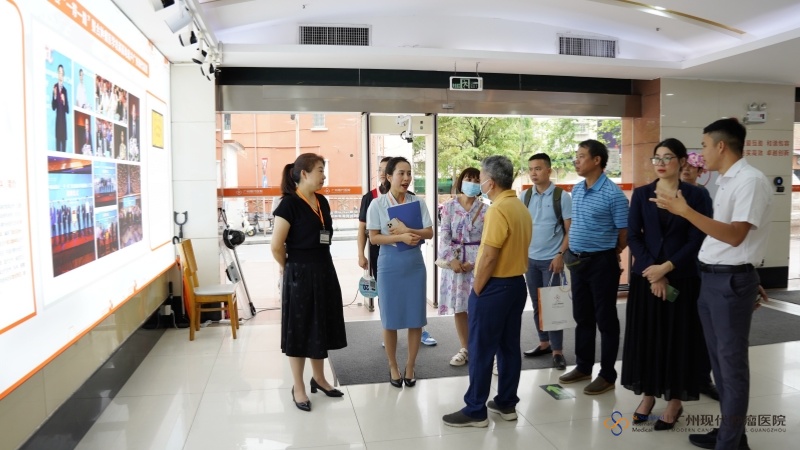
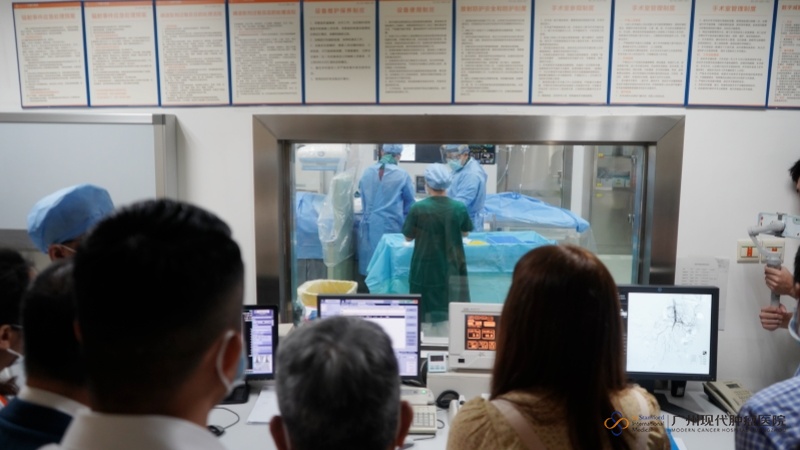
[Visiting St. Stamford Modern Cancer Hospital Guangzhou]
After that, experts from St. Stamford Modern Cancer Hospital Guangzhou and Ho Chi Minh International medical experts from Vietnam had academic discussions. Professor Song Shijun, the chief expert and assistant to the president, introduced the composition and advantages of the multidisciplinary medical team (MDT) of Modern Cancer Hospital, and the experts of both sides exchanged views on the current diagnostic model of tumors. Prof. Song said, "MDT is an interdisciplinary and inter-professional diagnosis and treatment model, which integrates the resources of experts in various fields to provide patients with all-round and multi-faceted treatment recommendations. This model can avoid the limitations of a single field and improve the accuracy and effectiveness of diagnosis and treatment. It provides more comprehensive and personalized treatment plans for tumor patients. At the same time, our hospital has set up an MDT remote consultation expert group to realize internationalized and localized consultation by connecting with experts from different countries. It is sincerely hoped that we can work together to develop a more suitable treatment plan for Vietnamese patients through the hospital's Vietnam Group MDT teleconsultation team, which has been established together with Vietnamese specialists."
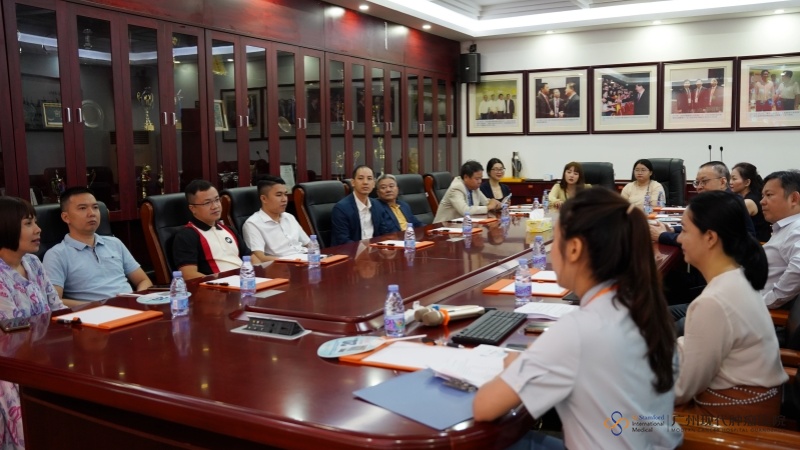
The Ho Chi Minh International Medical Expert Mission in Vietnam said that it is hoped that the medical experts of the two countries can be brought together to establish a suitable treatment model for local patients in Vietnam.
Minimally invasive tumor technologies to benefit patients worldwide
Professor Song Shijun, our chief expert and assistant to the president, shared "Minimally Invasive Tumor Treatment Technology", introduced the hospital's 18 minimally invasive tumor technologies, explained in detail the cutting-edge minimally invasive tumor technologies, such as interventional therapy, seed implantation, combined knife, etc., and made a vivid rendition by combining cases.
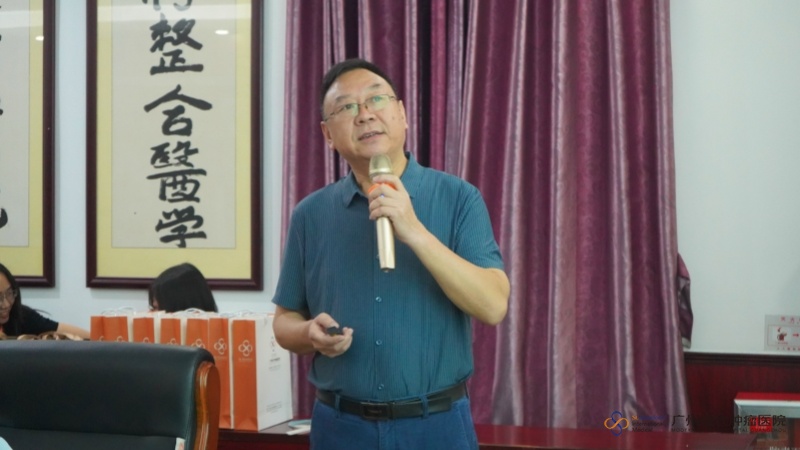
[Prof. Song Shijun]
Prof. Song said: The advantages of minimally invasive tumor technology treatment of St. Stamford Modern Cancer Hospital Guangzhou lie in small trauma, short treatment cycle, fast recovery, precise positioning, high treatment effect, avoiding to the greatest extent the damage of traditional surgery, radiotherapy and chemoradiotherapy to the patient's organism and body immunity, and improving the patient's survival cycle and quality of life. In addition, it is more suitable for patients with early and middle-stage tumors, avoiding major surgery and incisions. The treatment effect is remarkable for tumor patients who are physically weak and unsuitable for surgery and those in the middle and late stages. Among them, the CACA Guidelines for Holistic Integrative Management of Cancer, which brings together the experience and wisdom of China's top oncologists, focuses on minimally invasive oncology techniques. It is a tumor diagnosis and treatment guideline suitable for Chinese people and Asian races. However, many of its cutting-edge technologies and concepts have not yet been popularized and applied in Southeast Asian countries, etc. It is hoped that through this exchange, Ho Chi Minh International medical experts can bring the CACA Guidelines back to Vietnam to popularize and promote them so that more patients can benefit from them.
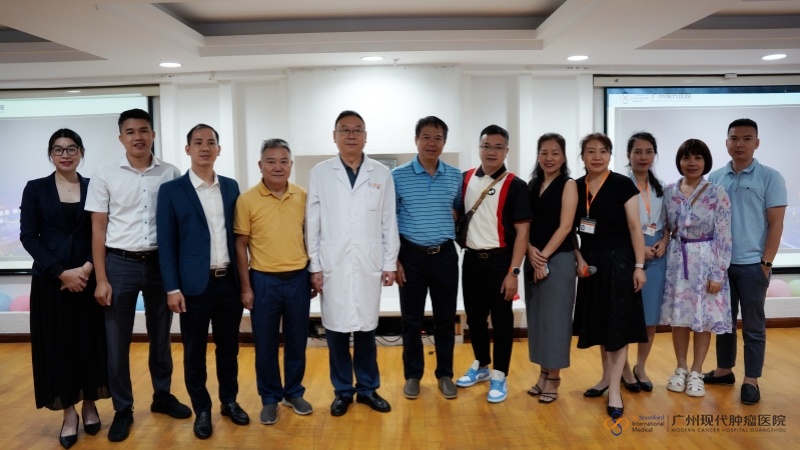
Vietnam Ho Chi Minh International medical experts said: after this visit, we have a better understanding of tumor diagnosis and treatment and minimally invasive tumor technology also visited Ho Chi Minh's tumor patients in the hospital, and the hospital's successful cases of using minimally invasive tumor technology in the treatment of middle- and late-stage patients are worthy of our learning and reference. Now, we are looking for a higher level of tumor diagnosis and treatment technology, and St. Stamford Modern Cancer Hospital Guangzhou, as an international JCI-accredited hospital, has advanced treatment technology and concepts, and we hope to take this opportunity to set up a platform for medical communication between the two countries, and to promote the medical development of the two countries through the exchange of talents, technical training, resource integration, and information sharing, etc. together.
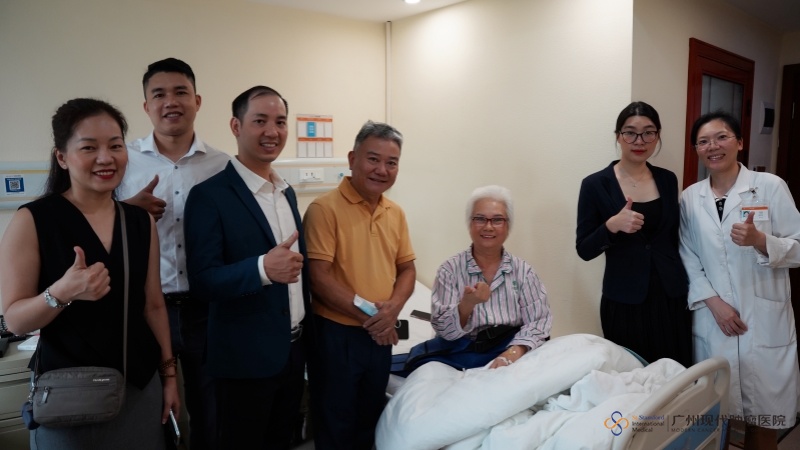
*Surgery, in addition to the appropriate chemotherapy and radiotherapy, are effective in treating early cancer, but certain patients in late stage of cancer may not be tolerate surgery well as they can be relatively weak. A combination of carefully planned minimally invasive therapy, chemotherapy or radiotherapy can effectively reduce the side effects and discomfort of treatment and may help patient get better efficacy.













 viber
viber